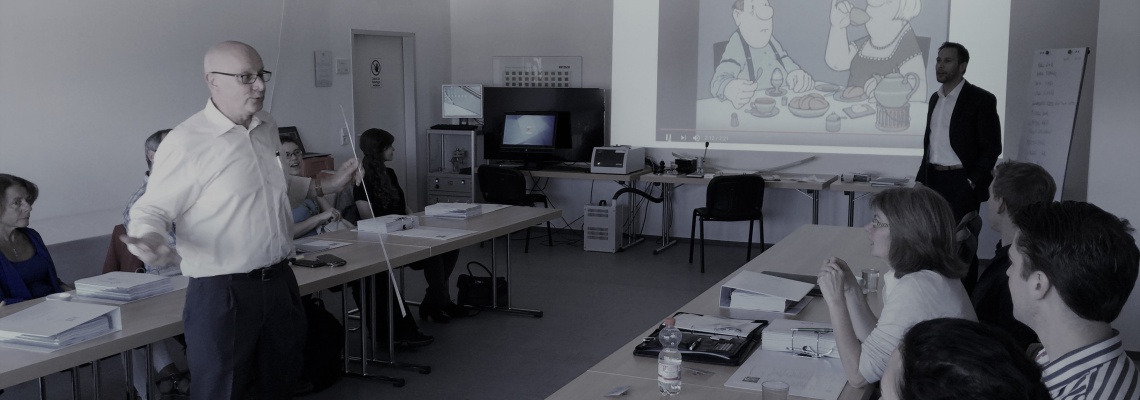Seminar Overview
The professional seminars proper curing of resin hardener systems – part I and part II are held in cooperation with Netzsch Thermal Analysis. The seminar “testing with strain gauges in theory and practice” is held in cooperation with Althen Sensors & Controls.
There is a limited number of participation places for students and scientific employees of universities at a reduced price. Just get in touch with us.
The professional seminar on proper curing of resin-hardener systems offers both a refresher and an expansion of expertise in reactive plastics. It is aimed at both the novice and the experienced materials engineer and focuses on the most widely used epoxy, unsaturated polyester and vinyl ester resins used as base materials for high technology applications in many industries.
The main focus of part I of the seminar is, besides an introduction to the chemical basics, the description of frequently occurring curing errors and the basic characterisation with the help of thermal analysis, especially with DSC. The relationship between glass temperature and degree of curing is worked out. The most common error, the danger of freezing of the reaction, is dealt with in detail on the basis of cases of damage. The DSC is flanked by the inclusion of other thermal analysis methods such as TGA and DMA. Practical measurements for the characterisation of uncured resins and the determination of the degree of curing of components are demonstrated on the DSC device. Own measurement curves or Netzsch measurement files are gladly discussed together.
In cooperation with
The professional seminar on proper curing of resin-hardener systems offers both a refresher and an expansion of expertise in reactive plastics. It is aimed at both the novice and the experienced materials engineer and focuses on the most widely used epoxy, unsaturated polyester and vinyl ester resins used as base materials for high technology applications in many industries.
The thematic focus of part II of the seminar is on the mechanical characterisation methods dynamic-mechanical analysis DMA, dynamic and oscillating rheology as well as online process control. In addition, the possibilities of the reaction kinetic description for process optimisation are presented. The ultrasonic process control will be demonstrated in practical application using the GZ US-Plus® system. Existing samples and materials can be brought along for practical testing of the ultrasonic process control. Own DMA measurement curves or Netzsch measurement files can be discussed together.
In cooperation with
The seminar "Fatigue Strength and Fatigue Behaviour of Composites" serves both to refresh and deepen the knowledge in the field of fatigue of isotropic materials and endless fiber-reinforced plastics. It is aimed both at engineers who want to consolidate their basic knowledge in this field and at those who are involved with fatigue in their daily work and want to deepen their understanding or extend it to include FRP. Knowledge in the evaluation of FRP under quasi-static load is helpful.
First, fatigue loads and their determination and classification are discussed. In addition, the fundamentals of cyclic testing of materials in general and of FRP in particular will be discussed. This applies, for example, to the selection of parameters such as test horizons, test speeds and frequencies, and specimen temperature. Evaluations are carried out on exemplary test data and statistical evaluation methods are taught. The statistical validation of the characteristic values to be determined is one of the topics. On the basis of the material behaviour during testing and the example of the behaviour of rotor blade structures under fatigue loading, ways of fatigue evaluation of FRP are described. The behaviour up to the initiation of damages as well as the degradation behaviour after initiation of damages are considered. Furthermore, paths to a design fixed to the operating time are taught. The use of Haigh diagrams, Goodman diagrams and constant-lifecycle diagrams is explained.
The seminar "Overview of standards in theory and practice - Correct testing of composites!" deals with the common and widely used standards for material testing of fibre-reinforced plastics. It offers both a refresher course and an extension of the specialist knowledge on composites and is aimed equally at beginners and experienced materials engineers. The presented DIN, DIN EN, DIN EN ISO and ASTM standards are explained in detail and compared with each other, so that the engineer is able to make independent decisions about the selection and application of the respective standard in everyday testing.
The main focus of the seminar is on the mechanical determination of characteristic values. In particular, the standards for tensile, compression, bending and shear tests will be dealt with. The treatment of these topics is supplemented by a practical part in which material tests are carried out on universal testing machines in accordance with the standards. The application of selected testing standards and their decisive influence on the determined material properties are explained in detail. In addition, further standards for the testing of fibre-reinforced plastics are presented, which are used in common practice and enable the engineer to correctly determine the required material properties. Own measurement curves, test reports or material test programs are gladly discussed together.
The professional seminar "Testing with strain gauges in theory and practice" offers both a structure and an extension of the specialist knowledge around the application of strain gauges in a materials testing laboratory. It is aimed equally at beginners and experienced material testers or laboratory assistants. The seminar provides the participant with the basic know-how about strain gauges and concentrates on the practical application of testing fiber-reinforced plastics.
The aim of the seminar is to enable the participant to apply strain gauge technology in the test laboratory. The content therefore covers the essential basics of this technology and consists of a theory and practice part. The emphasis is primarily on the practical application with bondings on specimens made of fiber-reinforced plastics, which are tested in universal testing machines. Furthermore, it is shown in detail how the measuring technique is connected to universal testing machines and which possibilities exist to transmit and evaluate the signals. Several universal testing machines as well as measuring amplifiers are available for this purpose. Own specimens with applied strain gauges (120 and 350 Ohm) can be brought along for testing.
In cooperation with
The professional seminar on the design and simulation of fibre composite structures offers both a refresher and an extension of the professional knowledge on composites. It is aimed equally at the beginner and the experienced design and calculation engineer. The seminar provides the participant with the basic know-how to master the design of composite components and gives an insight into simulation.
The aim of the seminar is to familiarise the participant with the anisotropic material behaviour of composites. First of all, the material parameters necessary for the calculation and Hooke's material law for unidirectional single layers (UD layer) are explained. The Classical Laminate Theory (CLT) is presented as the elementary calculation basis for stiffnesses and stresses in a multilayer composite (MSV). For the assessment of failure, the failure mechanisms are considered and the common failure criteria for strength assessment are presented. Using a practical example, the design process of an FRP structure with the acquired knowledge is shown. Finally, there is an excursion into the simulation of FRP structures.




